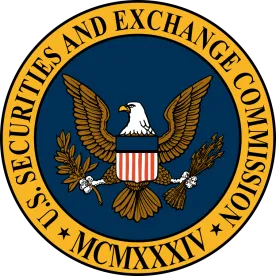On March 23, 2020, the Securities and Exchange Commission (“SEC”) issued an exemptive order (the “Order”) providing relief from certain provisions of the Investment Company Act of 1940 (the “1940 Act”) and various rules thereunder to registered open-end management investment companies (other than money market funds) (“funds”) and insurance company separate accounts organized as unit investment trusts (“separate accounts”) in order to permit short-term borrowing from affiliates. The Order is the latest in a series of SEC orders addressing the current outbreak of coronavirus disease 2019 (COVID-19) by providing a range of exemptive relief under the 1940 Act.
Notably, this is the first time the SEC’s recent exemptive relief has been expressly extended to insurance company separate accounts. While separate accounts invest solely in underlying variable insurance trusts and look to those funds for liquidity by redeeming fund shares, as a practical matter, the recent volatility in the markets might impact underlying fund redemptions by separate accounts.1
The relief is designed to provide funds and separate accounts with additional tools to address liquidity issues that may arise as investors request withdrawals and transfers. In issuing the Order, the SEC was able to draw on a playbook from the September 11, 2001 attacks where the SEC granted exemptive relief to funds and separate accounts in the wake of those attacks.
The Order is effective from March 23, 2020 through at least June 30, 2020. The Order may be withdrawn no earlier than June 30, 2020, by the staff by publishing a public notice at least two weeks before withdrawal.
1. Fund and Separate Account Borrowing from Affiliates
The Order provides relief from the following provisions of the 1940 Act to permit funds and separate accounts to borrow from affiliates, subject to the conditions described below.
- Section 12(d)(3). Section 12(d)(3) of the 1940 Act generally prohibits funds and separate accounts (among others) from acquiring any security (including a loan or note) issued by a broker, dealer, underwriter or investment adviser. The Order exempts funds and separate accounts from Section 12(d)(3) to the extent a fund affiliate or separate account affiliate is a broker, dealer, underwriter or investment adviser.
- Section 17(a). Section 17(a) of the 1940 Act generally prohibits first or second tier fund affiliates of funds or separate accounts from extending loans to the fund or separate account. The Order exempts first and second tier affiliates of funds and separate accounts from Section 17(a) to permit affiliates to make collateralized loans.
- Section 18(f)(1). Section 18(f)(1) of the 1940 Act permits funds to borrow from banks as long as 300% asset coverage is maintained. The Order exempts funds from Section 18(f)(1) to permit a fund to borrow money from a first or second tier affiliate that is not a bank and is not itself a registered investment company.
The practical effect of these exemptions is that funds and separate accounts will be permitted to borrow via collateralized loans from affiliates for the purpose of satisfying redemptions. Fund Boards of directors, including a majority of the independent directors, and insurance companies in the case of separate accounts, must reasonably determine that such borrowing is in the best interest of the fund or separate account and its shareholders or unit holders, and that the borrowing will be for the purpose of satisfying redemptions.
2. Interfund Lending Arrangements for Fund Complexes with Existing Interfund Lending Orders
Many fund complexes, including some proprietary insurance funds, have received an exemptive order from the SEC from various provisions of the 1940 Act to permit interfund lending arrangements (an “Existing IFL Order”). Most Existing IFL Orders provide that a fund’s aggregate outstanding interfund loans will not exceed 15% (or a lower limitation) of its current net assets. The Order increases the limit to 25%.
The Order also permits funds to borrow or make loans through interfund lending facilities for any term, notwithstanding any conditions otherwise limiting the term of such loans in an Existing IFL Order, provided that: (i) the term of any interfund loan made in reliance on the Order does not extend beyond the expiration of the temporary relief, (ii) the Board of directors, including a majority of the independent directors, reasonably determines that the maximum term for interfund loans to be made in reliance on the Order is appropriate, and (iii) the loans will remain callable and subject to early repayment on the terms described in the Existing IFL Order.
Funds must otherwise comply with their Existing IFL Orders, and prior to relying on the relief for the first time, a fund must disclose on its website that it is relying on an exemptive order that modifies the terms of its Existing IFL Order.
3. Interfund Lending Arrangements for Fund Complexes without Existing Interfund Lending Orders
For fund complexes that are not currently able to rely upon an Existing IFL Order, the Order permits funds in a complex to use interfund lending arrangements during the effective period of the Order. In order to rely upon the relief, the fund must satisfy the terms and conditions for relief in an interfund lending exemptive order issued by the SEC within the 12 months preceding the date of the Order. Funds may also rely on any additional relief granted to complexes with an Existing IFL Order (e.g., asset coverage, loan term conditions). Money market funds, however, may not participate as borrowers in the interfund facility.2
Prior to relying on the relief for the first time, a fund must disclose on its website that it is relying on the relief to utilize an interfund lending and borrowing facility. The fund is not required to amend its registration statement prior to relying upon the relief, but must disclose reliance on the relief in any prospectus supplement it files for other reasons, or a new or amended registration statement or shareholder report. Disclosure applies to filings made while the fund is relying on the relief and should include the material facts about a fund’s participation or intended participation in the facility.
4. Relief for Funds to Deviate from Fundamental Policies with Respect to Lending or Borrowing
Notwithstanding the relief provided by the Order, many funds have fundamental investment policies that would prohibit borrowing and lending as contemplated by the Order. To address this, the Order exempts funds from Sections 13(a)(2) and 13(a)(3) of the 1940 Act so that they may borrow and lend in accordance with the Order notwithstanding a fundamental policy that otherwise could only be changed through a shareholder vote, without prior shareholder approval. The Board of directors, including a majority of independent directors, must reasonably determine that such lending or borrowing is in the best interests of the fund and its shareholders. The fund must also promptly notify its shareholders of the deviation by filing a prospectus supplement and including a statement on the fund’s website.
In order to rely upon ANY relief available in the Order, the fund or separate account must notify the SEC staff via email prior to its reliance. A copy of the Order is available here.
1 Release No. 25156 (Sept. 14, 2001).
2 On March 19, 2020, the SEC staff issued a temporary no-action letter to the Investment Company Institute permitting money market funds regulated under Rule 2a-7 to sell securities under certain circumstances to their first and second tier affiliates that are subject to Sections 23A and 23B of the Federal Reserve Act. A copy of the no-action letter is available here.



 />i
/>i
